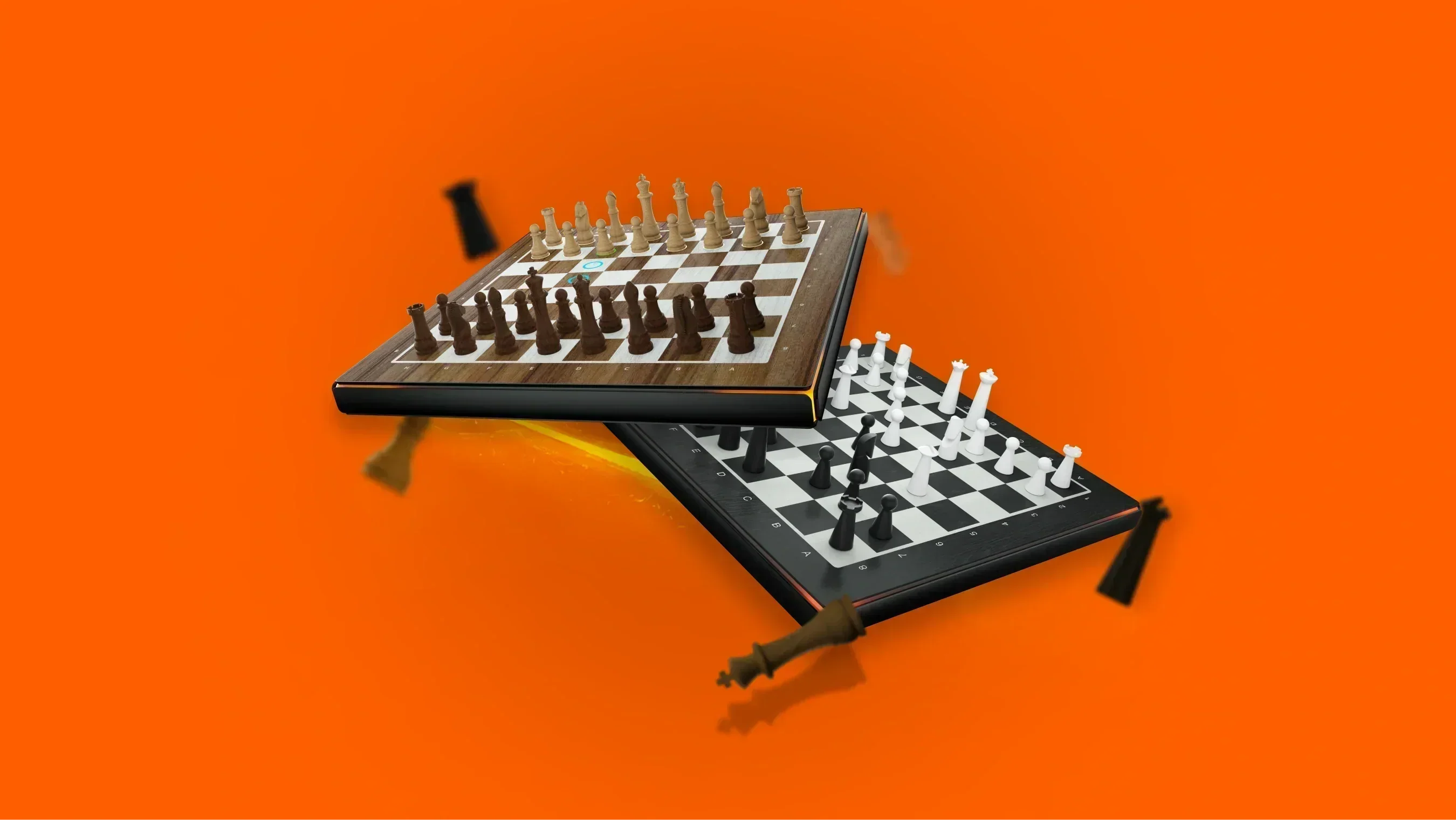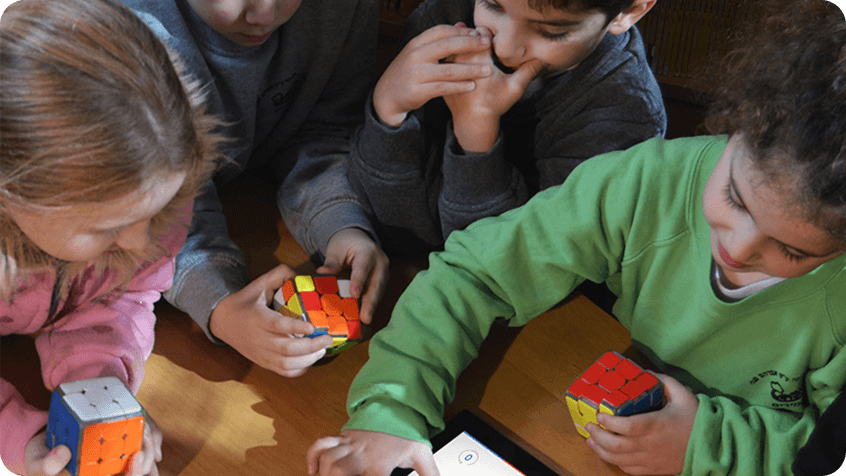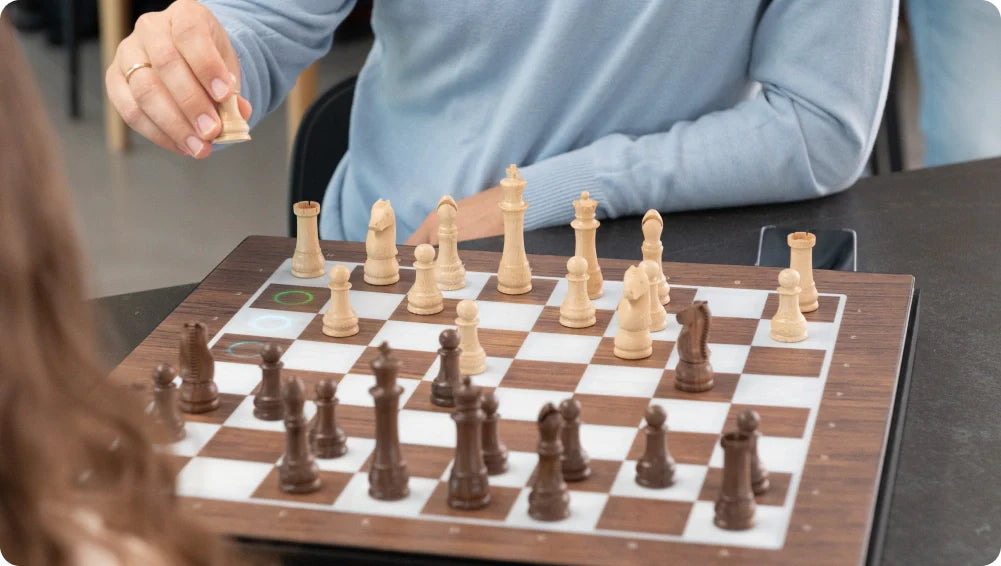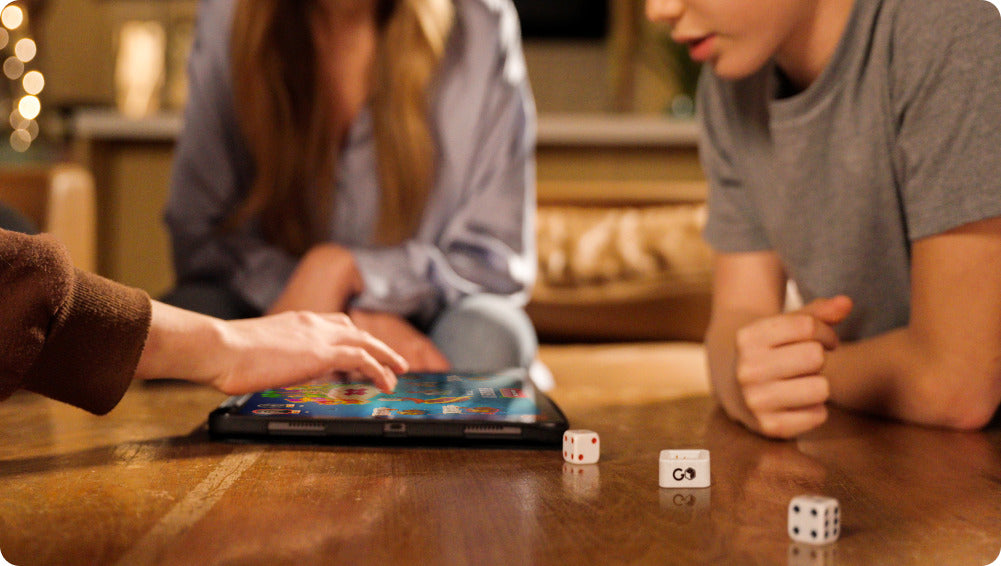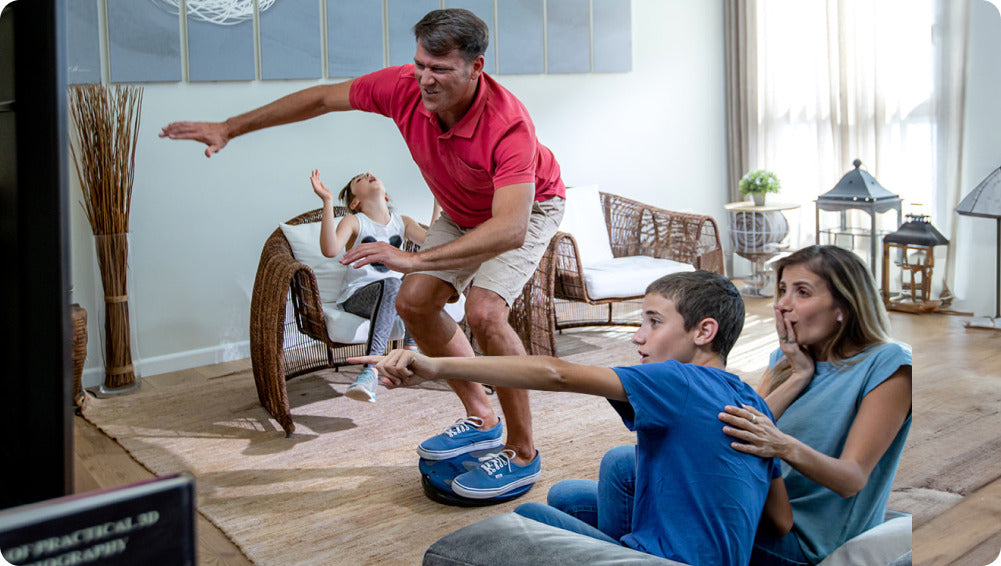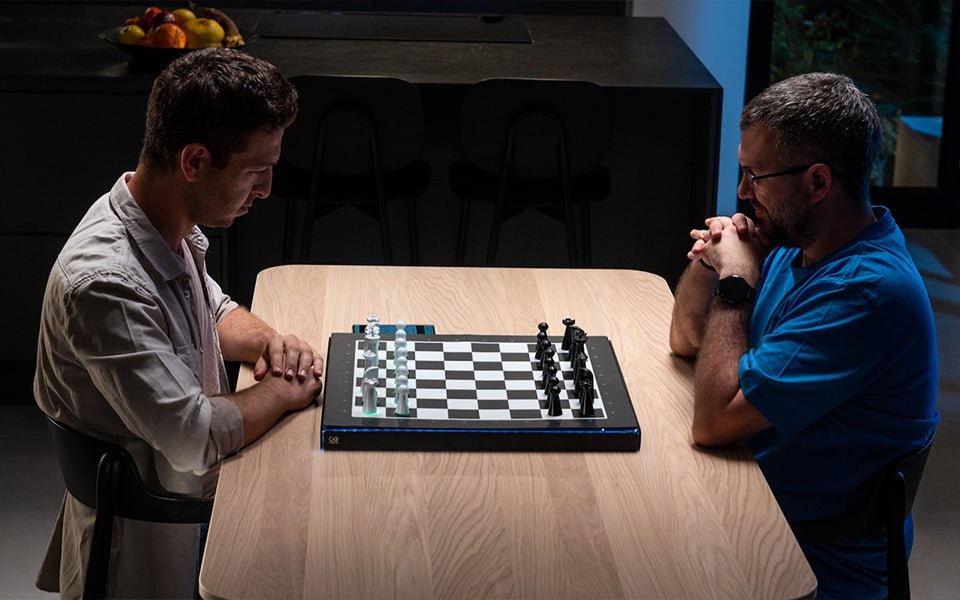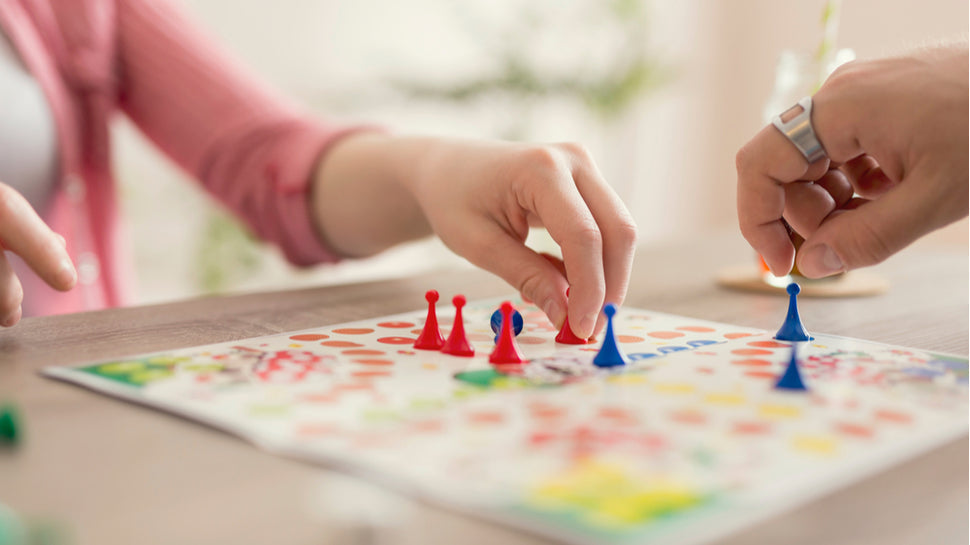Chess is a game of strategy, foresight, and a bit of flair. Regardless of if you're a well trained player or someone just starting, there's always room to improve your game. The thrill of outsmarting your opponent, the satisfaction of a well-executed plan—these are what make chess a timeless pursuit.
In this article, we’re diving deep into expert tips on how to win at chess, ensuring that the next time you sit across the board, you’ll be armed with the knowledge to dominate the game. From mastering the basics to exploring advanced strategies, we’ve got you covered.
And for those looking to elevate their practice even further, we’ll introduce you to a game-changing tool that’s set to revolutionize how you train and play.
Table of Contents
- Fundamentals of Winning at Chess
- Advanced Chess Strategies to Win
- Take Your Chess Game to the Next Level with GoChess
- Conclusion
Fundamentals of Winning at Chess
Mastering chess involves understanding several core principles that can significantly impact your game. By focusing on these fundamentals, you can develop a strong strategic foundation that will help you outmaneuver your opponents.
Control the Center
One of the first lessons in chess is to control the center of the board. Why? Because the center is the most active part of the board. Pieces placed here have more mobility and influence, allowing you to attack, defend, and transition more effectively.
By moving your pawns to the center early (like 1.e4 or 1.d4), you gain control and force your opponent to react. But don’t just push pawns—develop your knights and bishops early to control those central squares too.
Prioritize King Safety
A common mistake among beginners is neglecting their king's safety. While it might be tempting to launch an all-out attack, leaving your king exposed is a recipe for disaster. Always aim to castle early, tucking your king safely behind a wall of pawns.

This not only secures your king but also connects your rooks, preparing them for future action. Remember, a well-defended king is crucial for a winning strategy.
Develop Your Pieces Early
The opening phase of chess is all about development. This means getting your pieces—knights, bishops, and eventually rooks and queen—into the game as quickly as possible. Don’t waste time moving the same piece multiple times unless necessary.
Each piece should have a purpose, whether it’s controlling important squares or preparing for an attack. By developing your pieces efficiently, you’ll be ready to transition into the middle game with a solid foundation.
Avoid Early Queen Moves
While the queen is the most powerful piece on the board, bringing her out too early can be a mistake. Early queen moves can leave you vulnerable to attacks and can also stunt the development of other pieces. It’s usually better to hold off on moving your queen until the middle game when the board is more open, and her power can be fully unleashed without risk.
Practice a Lot
Like any skill, practice is key to improving your chess game. The more you play, the better you’ll understand the nuances of the game. But what if you don’t always have a partner to play against?

Enter GoChess, a revolutionary tool that allows you to practice even when you're alone. With GoChess, you can simulate real game scenarios, try out different strategies, and learn from your mistakes in a way that’s both interactive and engaging. It’s like having a chess coach at your fingertips.
Master Pawn Structure
Understanding pawn structure is crucial to controlling the flow of the game. Pawns may be the least valuable pieces, but their formation can significantly impact the strength of your position. For instance, doubled pawns (two pawns stacked on the same file) are generally weak, while connected pawns (pawns side by side) can be very strong.
Creating pawn chains where each pawn protects the one in front of it can create a solid defense. By mastering pawn structure, you’ll set up a strong foundation that makes it difficult for your opponent to break through.
Know When to Exchange Pieces
Exchanging pieces is a fundamental part of chess strategy, but knowing when and why to trade is key. A good exchange is one that improves your position—perhaps by removing a strong enemy piece, simplifying the game when you have a material advantage, or opening up lines for your remaining pieces.
Avoid trading just for the sake of it; each exchange should be calculated to bring you closer to a winning endgame.
Control Open Files
Rooks are most powerful when they control open files—columns on the board with no pawns. Placing your rooks on these open files allows them to dominate the board, controlling more squares and creating threats that can restrict your opponent’s movements.
An open file often serves as a pathway to your opponent’s territory, enabling you to penetrate their defenses and apply pressure. If you spot an open file, claim it with your rooks and use it to your advantage!
Advanced Chess Strategies to Win
To elevate your chess game to a higher level, you need to go beyond the basics and explore advanced strategies. These tactics involve deeper understanding and creativity, helping you outplay even the most skilled opponents.
Master the Art of Sacrifice
In chess, sometimes you have to give up something to gain a larger advantage. This is where the art of sacrifice comes into play. Sacrificing a piece, like a pawn or even a minor piece, can open up the board, create weaknesses in your opponent's position, or lead to a devastating attack. However, sacrifices should be calculated, not reckless.
Always ensure that the reward is worth the cost, whether it’s gaining a better position, attacking opportunities, or even checkmate.
Learn to Calculate Multiple Moves Ahead
Chess is often described as a game of foresight, where the best players can calculate many moves ahead. While this skill takes time to develop, it’s crucial for winning at chess.
Start by thinking about your opponent's possible responses to each of your moves and plan accordingly. Visualization and practice are key here. The more you play, the better you’ll get at seeing the board from multiple angles and predicting future positions.

Exploit Weaknesses
Every position on the chessboard has strengths and weaknesses. A skilled player can identify and exploit these weaknesses to gain an advantage.
This might mean targeting an undefended pawn, attacking a poorly placed piece, or opening up lines of attack on an exposed king. By staying vigilant and looking for these opportunities, you can turn even the smallest advantages into a winning game.
The Power of Pin and Fork
Two tactical motifs that can turn the tide of a game are the pin and the fork. A pin occurs when a piece is attacked and cannot move without exposing a more valuable piece behind it. For example, pinning a knight to the king with a bishop can effectively take the knight out of play.
A fork, on the other hand, is when one piece simultaneously attacks two or more of the opponent's pieces, often leading to material gain. Mastering these tactics will significantly enhance your ability to win brain games.
Endgame Mastery
The endgame is where many games are won or lost. This phase of the game involves fewer pieces and requires precise calculation and deep understanding.
Common endgames include king and pawn endings, rook endings, and opposite-colored bishop endings.
Learning key endgame principles, like the importance of pawn promotion and the opposition in king and pawn endings, can make all the difference in securing a win.
Take Your Chess Game to the Next Level with GoChess
With its advanced features and user-friendly design GoChess offers a comprehensive solution to help you refine your strategy, practice effectively, and compete at higher levels.

The Ultimate Chess Companion
For those serious about taking their chess game to the next level, GoChess is an indispensable tool. GoChess isn’t just another chess set; it’s a smart, connected chessboard that offers real-time feedback, interactive tutorials, and AI-driven coaching.
Real-Time Analysis and Feedback
One of the standout features of GoChess is its real-time analysis. As you play, GoChess tracks your moves and provides instant feedback on your decisions. This means you can learn from your mistakes on the spot, helping you to understand why a particular move was good or bad.
This immediate feedback loop accelerates your learning process, making each game a valuable lesson in strategy and tactics.
Interactive Tutorials for All Levels
GoChess offers a range of interactive tutorials designed to suit players of all skill levels. These tutorials cover everything from basic opening principles to advanced endgame strategies.
What sets GoChess apart is its ability to adapt to your skill level, offering challenges that are neither too easy nor too difficult, keeping you engaged and motivated to improve.
Practice Against AI or Real Opponents
GoChess offers a comprehensive training experience with 32 AI difficulty levels, allowing you to practice against virtual opponents that mirror different playing styles and skill sets. This helps you prepare for a wide range of strategies you might face in real-life games.

It goes even beyond its own platform, enabling seamless integration with Lichess.org and Chess.com. You can connect with players from these popular platforms and compete in endless matches, ensuring you’re never limited to the app itself. Play with anyone, anywhere, with no restrictions!
Portable and Convenient
GoChess is designed for ultimate portability, available in both standard and compact travel sizes. Whether you choose the standard model for home use or the travel size for on-the-go convenience, GoChess is ready to play wherever you are. The Lite version comes in two distinct designs—modern and classic—allowing you to select one that suits your style. Its sleek design and intuitive interface ensure easy setup and gameplay within minutes. Additionally, with impressive battery life, you can enjoy extended play sessions without the hassle of frequent recharging.
A Game-Changer for Chess Enthusiasts
For those who are passionate about chess, GoChess is more than just a tool; it’s a game-changer. It bridges the gap between traditional chess and modern technology, offering a unique experience that enhances both learning and enjoyment.
By integrating smart features with classic gameplay, GoChess ensures that every game is an opportunity to improve and have fun.
Conclusion
Winning at chess is a blend of strategy, practice, and continuous learning. By mastering the fundamentals, exploring advanced tactics, and utilizing tools like GoChess, you can elevate your game to new heights.
It doesn't matter if you play for fun or you're looking to compete at a higher level, these expert tips will give you the confidence and knowledge you need to win! You should never forget that every game is an opportunity to improve, so keep playing, practicing, and most importantly, enjoying chess!



